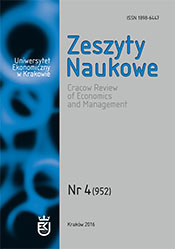Przestrzeń międzyludzka w powieściach Fiodora Dostojewskiego
Interpersonal Space in Fyodor Dostoyevsky’s Novels
Author(s): Jerzy BukowskiSubject(s): Philosophy, 19th Century Philosophy
Published by: Wydawnictwo Uniwersytetu Ekonomicznego w Krakowie
Keywords: encounter; “new word”; dialogue; authenticity
Summary/Abstract: The works of Fyodor Dostoyevsky played an important role in shaping the 20th century philosophy of dialogue. His view on the novel’s protagonist is always the result of confronting his own consciousness with the consciousness of others, which is facilitated by shifting from auctorial to personal narration: the characters, describing their experiences and outlook, conduct an internal dialogue which helps them to find or make sense of their own existence.The truth about me or about another person is revealed in encounters with other people but it cannot be described with precision because the spontaneity, authenticity, and multi-dimensionality of the person would otherwise be lost. In order to give another person the credit of trust, we must open to them even if, instead of reciprocity, we encounter indifference or hatred.This article analyses such encounters of the protagonists of Crime and Punishment, The Idiot, and The Brothers Karamazov; encounters which are replete with honesty as well as the desire to utter “a new word” (this could be a thought, an idea, an invention, a social change, a revolutionary change). In them, Dostoyevsky presents the essence of what can happen between people when they let themselves be overwhelmed by exceptional and powerful experiences and take off the masks and veils readily used every day.
Journal: Zeszyty Naukowe Uniwersytetu Ekonomicznego w Krakowie
- Issue Year: 952/2016
- Issue No: 04
- Page Range: 17-26
- Page Count: 10
- Language: Polish

